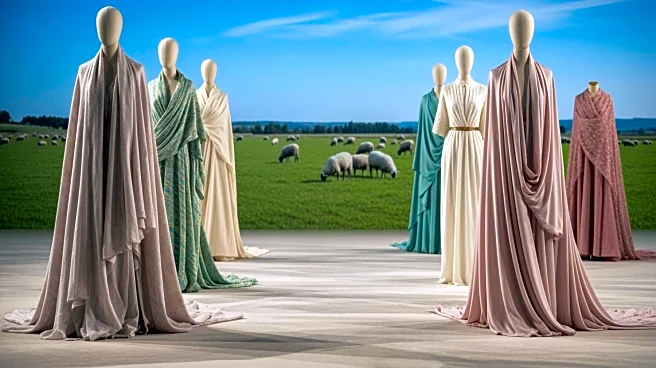What's Happening?
A recent report by the animal welfare organization Four Paws reveals that one-third of international fashion brands lack a clear strategy to combat mulesing, a controversial practice involving the cutting
of skin from lambs to prevent flystrike. Despite 84% of surveyed brands opposing mulesing, transparency and commitment to mulesing-free wool certification remain insufficient. The report surveyed over 100 brands across eleven countries, including the US, and highlighted varying levels of transparency and commitment among brands. Notably, brands like Patagonia and H&M have made strides towards using certified mulesing-free wool, while others, such as Michael Kors, showed minimal transparency.
Why It's Important?
The lack of action plans against mulesing among fashion brands has significant implications for animal welfare and consumer transparency. Mulesing, particularly prevalent in Australia, the largest wool producer, has been criticized for causing severe animal suffering. The report underscores the need for brands to adopt mulesing-free certifications like the Responsible Wool Standard to ensure ethical practices. This issue affects consumer trust and brand reputation, as more consumers demand ethical and sustainable products. Brands that fail to address mulesing risk losing market share to more transparent competitors.
What's Next?
Four Paws is urging fashion brands and the Australian wool industry to transition to certified mulesing-free wool and improve transparency with consumers. The report adds to ongoing discussions at international wool conferences, emphasizing the need for animal welfare considerations in the sustainability dialogue within the fashion industry. Brands are expected to face increasing pressure from consumers and advocacy groups to adopt ethical practices and improve transparency regarding their wool sourcing.
Beyond the Headlines
The report highlights a broader issue within the fashion industry, where animal welfare often takes a backseat in sustainability discussions. As environmental concerns dominate the agenda, the ethical treatment of animals in wool production remains a critical yet under-addressed aspect. This development could lead to a shift in industry standards, with more brands potentially adopting comprehensive animal welfare policies.











